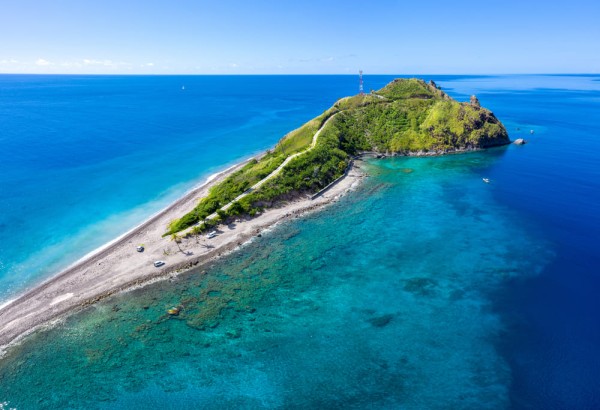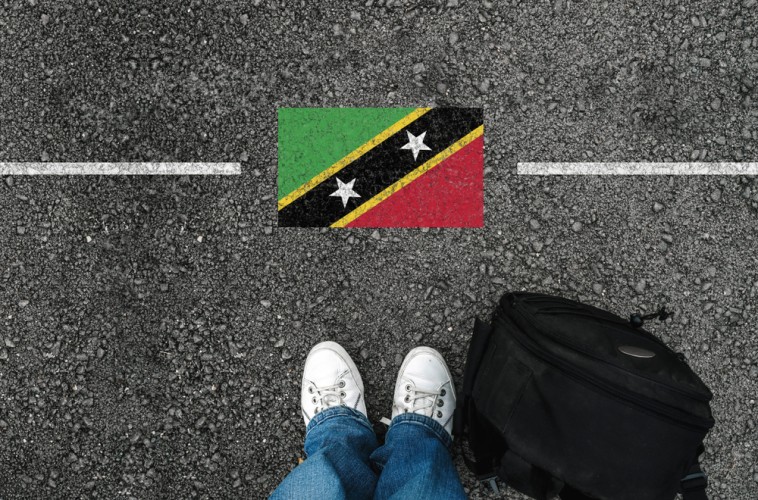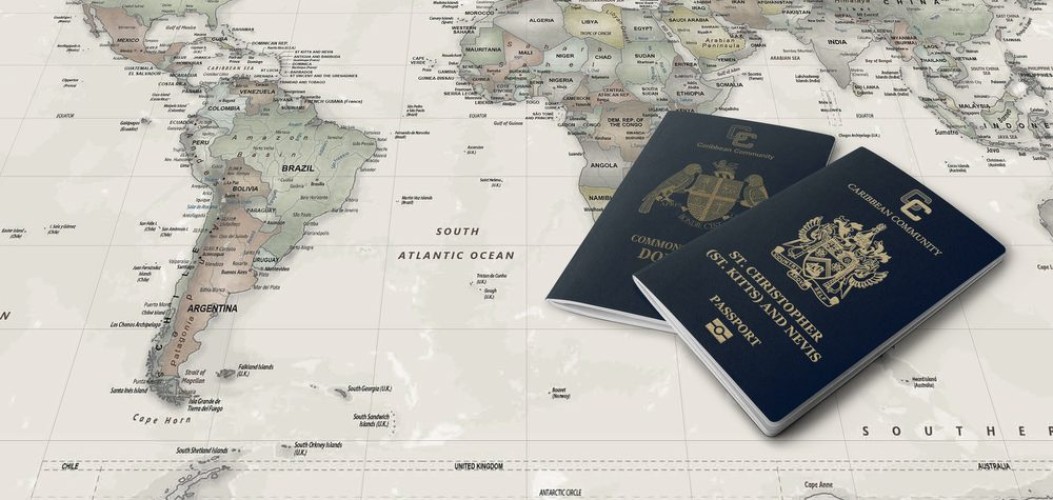Financiers are paid duties in Dominica if they make money in the territory of the nation, set up a company there, acquire immovable property, and receive the status of levy resident. For ordinary people there is taxation on revenue up to 35%. Firms pay income tax equal to 25%. Organisations likewise are paid a cost supplementary tax of 10-15%. Further you can learn about the peculiarities of the fiscal system in the nation.
Dominica is a beautiful islet nation situated in the Caribbean Sea, between the Dominican Republic and Martinique. Here are several interesting facts about nation:
- The youngest nation in the Caribbean: Dominica gained independence from the UK only in 1978.
- Unusual name: Dominica’s name comes from the word “Dominica”, meaning “Lord’s Day” – it was named after Christopher Columbus, who landed on the isle on a Sunday.
- An isle of volcanic origin: nation is famous for its volcanoes, among which the most famous is Diablotin, as well as many warm sources and falls.
- National Park: Dominica has three national parks where you can see a variety of rare species of plants and animals.
- Ecotourism: Nation is known for its eco-trails, canyons and scenic landscapes.
Nation has a relatively simple levy system, which attracts financiers and business persons.
Dominica’s taxation system
Taxation of ordinary persons in the nation is defined by taking into account the status of a person. He may be a resident or a non-resident. In the 1st case, income tax is paid on all income. In the 2nd case, the payment is provided if the financier earns in Dominica. For example, the levy is paid by rentiers.
A natural person does not become a resident immediately after nationality. The corresponding status is assigned to those who live in the nation for minimum 6 months a year. Those who participated in the certificate programme for financiers are not demanded to reside in the nation.
Income tax in Dominica
Payment is provided for any income that a person has.
This includes wages, business profits for the self-employed, dividend payments, and income earned by rentiers.
The dividend deduction tax is paid by the person who provides the dividend. The one who receives the deductions no longer pays the levy.
There is no revenue, capital gains levy for money that is got from the realisation of immovable estate.
Tax rates and brackets
The nation provides for a progressive revenue tax:
- 15% for the 1st 20 thousand EC$;
- 25% for the next 30,000 EC$;
- 35% for the remaining of the revenue.
Tax payers are entitled to receive deductions, i.e. to reduce the sum that is levied. Deductions are divided into ordinary and general. It is conceivable to have several deductions at once. For instance, you can get a deduction for contributions to funds that are included in the list approved by the authorities.
Corporate taxation in Dominica
Firms are subject to a 25% profit levy. In addition, organisations transfer 7% of staff’ salaries to public foundations. Resident firms are paid levy on all profits. Non-residents are paid just for the profit they have made in the nation. The levy is payable no later than 90 days after the fiscal year is completed. It ends on 30 June. The levy can be paid in instalments.
Property levies in Dominica
There is no sales charge, acquisition of immovable property, transfer of title, or general levy.
Types of property levies
The acquirer makes stamp, court and legal payments to the insurance fund. Approximate additional costs of the purchaser of real estate – 10.5% of the transaction amount.
The seller of a property makes a stamp duty payment equal to 2.5% of the price of the property. The income from the sale of the property is not subject to levies.
Tax benefits for property owners
No levy is payable by the property owner. However, in Roseau and Canefield there is a municipal levy of 1.25%. If the owner is a rentier, he pays a fee to formalise the agreement. This is equal to approximately 1% of 12 months’ rent.
In addition to property levy, there may be additional fees such as rubbish collection fees and water supply fees. Accurate information on property levy in Dominica can be obtained from the official Dominica government website. It is recommended that you contact a local realtor or lawyer for more accurate information and advice on your specific case.
Levy benefits for financiers
Dominica allows financiers to obtain nationality for a certain investment. Benefits of nationality for investment in Dominica:
- Visa-free entry to over 140 nations: Including Schengen nations, UK, Singapore and many others.
- Tax benefits: Dominica has no personal income, inheritance, and gift or wealth levy.
- Stable political and economic environment: Dominica is a democratic nation with a sustainable economy based on tourism and agriculture.
- No residency requirement: You do not need to reside permanently in Dominica to obtain and retain nationality.
- Easy and fast nationality process: The nationality process usually takes between 3 and 6 months.
- Family-friendly: You can apply for nationality for yourself, your spouse and children.
Candidate Requirements:
- Clean reputation. No criminal record and no links to criminal activities.
- Financial Solvency. Proof of financial solvency to cover investment and processing costs.
- Passing a background check. A security check and a thorough review of your background.
Additional Costs:
- Government fees: Including application processing fees, security checks, medical examinations, English language training and other administrative costs.
- Legal and counselling services: It is recommended that you contact an immigration specialist for assistance with the application process.
Citizenship by investment program
Dominican citizenship is granted to those who make a gratuitous payment to the Fund for Economic Diversification of the nation in the amount of 100 thousand dollars or more. A passport is also issued to those who purchase immovable property worth 200 thousand dollars or more. The object must be included in the list developed by the authorities.
The volume of investments is determined taking into account the candidate’s family. Together with the financier, passports are entitled to issue:
- husband or wife;
- sons, daughters under 30 years of age;
- mother, father, their spouses;
- unmarried sisters and brothers under 25 years of age.
All relatives, except spouses and unmarried children, must be dependents of the applicant. In addition to the basic investment, a security clearance fee will be required.
Double taxation treaties
If a resident of a nation earns income outside of Dominica, there may be an obligation to pay levies at full rates in the 2 nations. Double taxation treaties help to prevent this situation. They are formalised with such nations of the Caribbean Community as:
- Grenada;
- Montserrat;
- Barbados;
- Jamaica;
- St Lucia and others.
The list of nations may change, for example, if the Dominica authorities conclude new treaties with other Nations.
Dominica does not have these agreements with most of the nations. If income is received by a person from a company in the nation, but the financier lives outside Dominica, he can change the nation of levy residency. In this case, the levy burden will be reduced.
How to file taxes in Dominica
A levy return is designed to show all amounts that are taxable. The taxpayer draws it up at certain intervals and submits it to the tax authorities. When drawing up a declaration, it is necessary to comply with the current regulations.
Revenue levy on wages is paid every month. Payment is made by the fifteenth day of the month subsequent the reporting period. The employer withholds levy from wages and pays it to the levy authorities.
Those who have Dominica residency must file an income levy return every year. This is relevant if the income comes only from wages, does not exceed EC$ 30 thousand annually. The deadline for filing the declaration is 31 March of the year following the accounting period. The declaration is made through an account on the levy authorities’ portal.
In order to acquire residency of the nation, it is required to register at the address of residence, to issue a special identifier, the code of the tax payer. In addition, you must live in Dominica for at least six months out of 12 months.
The fiscal year terminates in Dominica on 30 June. Levy for the year can be paid in 3 instalments. You can pay 25%, 35%, 40%.
Dominica has entered into treaties with nations in the Caribbean Community that form offshore jurisdictions. The levy is paid in accordance with the rules of the nation in which the taxpayer is a resident.
There are no duties on wealth, inheritance. However, there are fees for real estate, registration of a yacht, purchase of a car.







